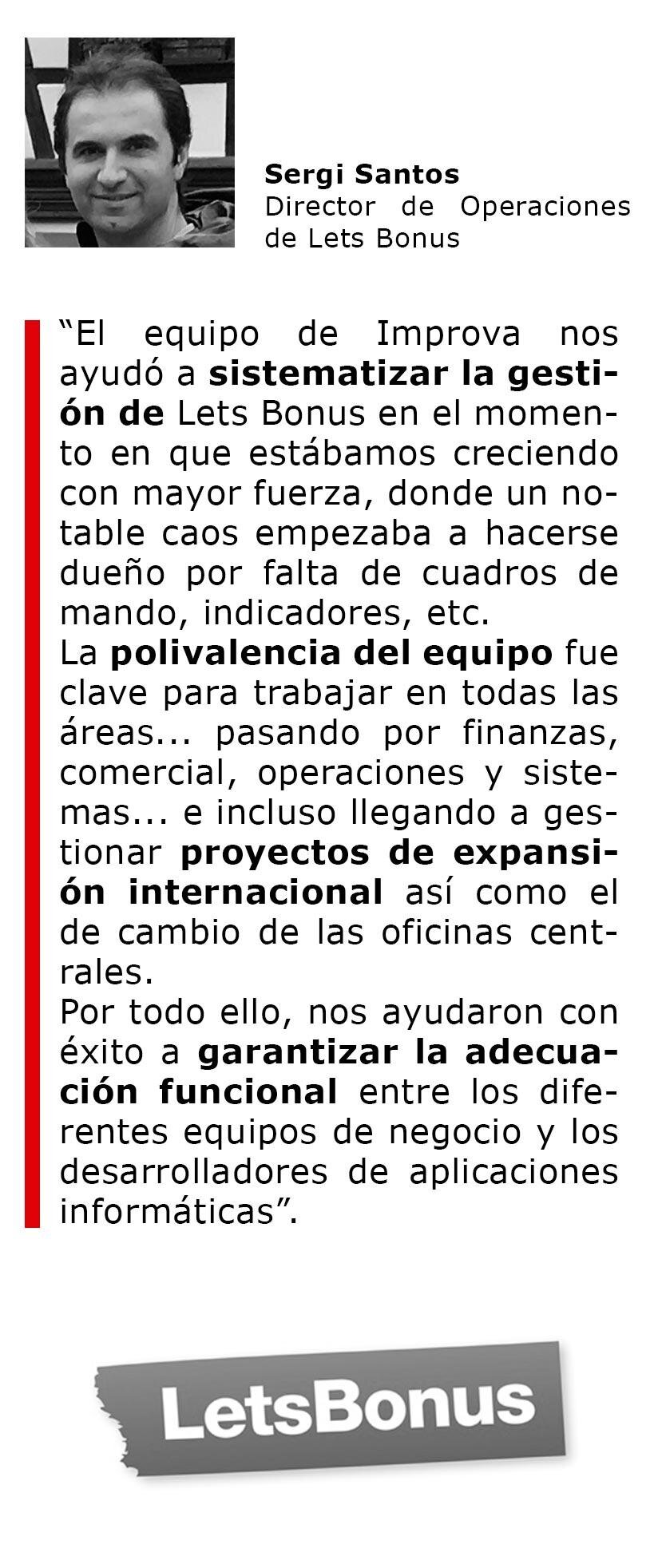Mobility promotes and drives change.
“I believe the auto industry will change more in the next 5 to 10 years than it has in the last 50. ”
Mobility has evolved from a series of isolated products and services to a complex ecosystem of interacting services.
To accompany the change from mobility to a service (MaaS).
And thereby improve our value proposition.
Understanding the mobility ecosystem is key to building our value proposition.
Did you know that…
...the car accounts for 8% of the average household budget and spends 97% of the time parked?
In big cities, more and more consumers assume that the cost-benefit of car ownership is excessive.
... 93% of Spaniards, compared to 80% of Europeans, live connected to our mobile device?
There are more than 50 mobility apps in Spain:
VTC/Taxi: +150,000 users | Car: +400,000 users.
Bicycle: +150,000 users | Scooter: +150,000 users.
Spaniards (INE)
12% of spending on transport.
93% connected to mobile phones.
Generation & (Deloitte)
30% plan their transport with a mobile app.
50% are willing to abandon the car.
... by 2030, 25% of automotive profits are expected to come from digital services and shared mobility?
Estimated 2030 opportunity of 1.8 trillion euros.
Mckinsey
AUTOMOTIVE AND MOBILITY SERVICES OFFER
Automotive OEM, Tier 1, Tier 2 manufacturers and vehicle distributors (dealers).
With the responsibility to carry out the industrial process and get the vehicles to the next level of the chain. They take many risks and face major operational and commercial challenges.
Potential lines of improvement:
Improving processes, network and customer experience:
Improvement of commercial processes and customer experience.
Qualitative measurement system and KPI management.
Support for the launch of new vehicles.
Analysis of internal and external efficiency of the different areas and implementation of transformation projects with tangible results.
Point of sale and back-office digitalisation.
Improved mobility services:
Construction of a subscription-based sales model (CaaS) for branded fleets.
Development of mobility services with the stock of self-registered vehicles (demos and courtesies).
Improvement of used-vehicle sales processes:
Optimisation of expertise, purchases, reconditioning, turnover and margins.
Profitability of the different channels.
After-sales services (workshop management, spare parts distribution, etc.).
Serving a large part of the mobility ecosystem, they face additional challenges in terms of stock management and procurement, as well as maintaining a continuous technological know-how.
Potential lines of improvement:
Process optimisation:
Reception of orders and vehicles.
Provisioning (system and parameterisation).
Reception and storage (layout).
Picking, order preparation and transport.
Workshop planning.
Collection and delivery of vehicles.
Central warehouse management:
Service policies.
Standardisation of processes.
Resource planning and scheduling.
Continuous improvement mechanisms.
Training:
New processes and systems.
Team management, leadership, etc.
Complementary services (financing, car insurance...).
There is a whole parallel market in the mobility ecosystem that greatly conditions the pricing and usability policies of the other players. Understanding the different needs is key to achieving effective and profitable collaboration.
Potential lines of improvement:
Development of financial products and insurance policies:
Market and competition studies.
Development of high-impact financial products for the businesses we support.
Development and adaptation of insurance products according to the client's needs.
Optimisation of administrative operations.
Definition and deployment of commercial plans.
Optimisation of logistics for the transport of vehicles of all types:
Definition of end-to-end processes.
Location criteria and tracking system.
Coordination of supplier and customer systems.
Other services:
Optimisation of field processes.
Optimisation of appraisal and valuation processes.
Rent a car, leasing companies, remarketing and company fleets.
A key line of business in the B2B environment that also has an impact on B2C markets. They combine commercial activity with fleet maintenance and all kinds of logistics management.
Potential lines of improvement:
Improving B2B sales processes:
Fleet customer journey analysis.
NPS improvement programmes.
Business Development Center development.
Lead management and CRM of salespeople.
Fleet business improvement programmes.
Optimisation of logistics and vehicle delivery.
Improvement of B2C rentacar processes:
Customer journey analysis.
NPS improvement programmes.
Lead management and CRM of salespeople.
Optimisation of vehicle logistics and delivery.
Vehicle tracking.
Maintenance and repair management.
Used vehicle exit management.
Micromobility and start-ups.
A whole range of emerging businesses with novel approaches, supported by technology and focused entirely on the consumer. They represent direct and aggressive competition within the ecosystem, especially in large cities.
Potential lines of improvement:
Generation of new business:
Launching of financing processes.
Definition of business strategies.
Development and optimisation of products and services focused on new mobility concepts.
Definition and deployment of commercial plans.
Support for the creation and evolution of brands.
Optimisation of micro-mobility operations:
Design and deployment of management systems.
Definition and monitoring of indicators.
Management of commercial activity.
Optimisation of fleets and resources.
Implementation of technology for excellence.
Coordination between actors sharing the same path.
Management of continuous improvement.
Smart cities (passenger transport, infrastructures, parkings...).
Much of the travel is within medium and large urban areas, with enormous logistical, coordination and resource optimisation challenges. Their deployment and management must always be based on continuous specialised studies and analysis of consumer behaviour.
Potential lines of improvement:
Optimisation of passenger transport:
Customer journey analysis and improvement.
Route management and optimisation.
Fleet maintenance processes.
Coordination between mobility actors.
Digitalisation of services.
Deployment and improvement of infrastructures:
Parkings network design and strategy.
Commercial and loyalty policies.
Deployment of electric charging structures.
Design of urban parking plans.
Logistics, packaging and last mile delivery.
Mobility dedicated to goods in cities combines the difficulties of any logistics process with the challenges of modernisation and sustainability of the urban ecosystem. In addition, an increasingly demanding customer is pushing to maximise agility and reduce cost.
Potential lines of improvement:
Logistics processes:
Development of a transversal management system.
Analysis and improvement of customer journey.
Market and competition studies.
Review of end-to-end delivery process.
Design of commercial plan and management of commercial activity.
Partner programme.
Innovation and sustainability:
Digitalisation of services.
Digital transformation of facilities.
Sustainability plans.
Fleet adaptation and updating.
Coordination with other mobility actors.
Why trust improva. with such an important challenge?
Because we understand your problems and we have the capacity to help you.
Specialised team
David Ortega
Commercial Director and member of the Management Committee at Grupo Moventia and Volkswagen Group Retail Spain. Specialised consultant for WPP, TUI Travel and BCG. Associate Professor and Director of Automotive Programmes at EADA and Managing Partner of Mobilty Services Improva.
Joan Miquel Malagelada
Director of Global Marketing at Audi AG, Director of Marketing and Product Strategy at SEAT, Director of SEAT's own dealership network and Director of Marketing at Hyundai, in addition to other management positions in different subsidiaries of the group.
President of Esade Alumni's Automotive and Mobility Club and
Current Managing Partner of Automotive Marketing and WISE Senior Advisor at Improva.
Leonardo García
Manager in the Automotive sector. Experience in OEM, Tier1/Tier2 production environments as COO and Quality and Project Manager.
Director of After Sales, Operations and Customer Service in Automotive Retail in the Volkswagen Group.
Specialist in Dealerships, Workshop Networks and Parts Distribution.
Director of Mobility Services Improva and Partner of Improva's South Zone Business Unit.
David de la Rica
Manager in different areas for the Volvo Group, Head of Business Control, Head of Logistics and Product Engineering and Head of Systems and Business Intelligence at Renault Trucks and Volvo Trucks.
Director at Mobility Services Improva.
Automotive and mobility ecosystem customers
References from our customers
Ecosystem of excellence
Based on the experience of high-level managers
20 former top managers in leading companies are actively working with us.
AUTOMOTIVE AND AERONAUTICS
Francisco de Pablo,
SEAT Manufacturing Director.
Juan Fernández Laporta,
Financial Director NISSAN.
Joan Miquel Malagelada,
Marketing Director SEAT, AUDI, HYUNDAI.
Juan Domingo,
Purchasing Manager and Engineering Manager NISSAN.
Josep Vilar,
Assembly, Paint and Quality Manager NISSAN.
With partners dedicated to the mobility ecosystem
Automotive cluster
Focused on reinforcing the competitiveness of the automotive industry as an engine of the economy, promoting projects that help to generate employment and positioning.
Expert operator
Offering different face-to-face and remote services through its own technological platform.
Digitalisation platform
Specialised in optimising and standardising all administrative processes associated with the life of the vehicle.































